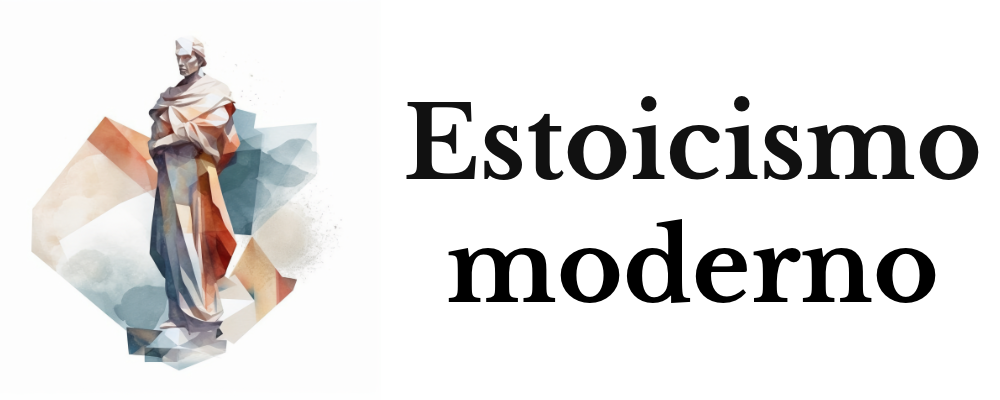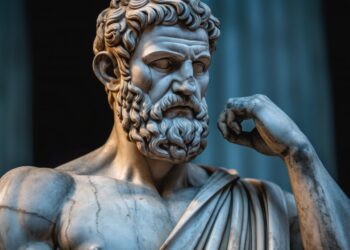Philosophy and Consumerism: Modern Materialistic Reflections
In a world where hills of commodities and mountains of gadgets rise before us as modern icons of success and happiness, the gentle voice of Stoicism invites us to contemplate serenity, not on the supermarket shelves, but within the fortress of our soul.
The Stoics, those colossi of classical thought such as Seneca, Epictetus, and Marcus Aurelius, bequeathed us a timeless manual on how to inhabit this world with grace and resolve. Their texts, revised not as relics but as living compasses, spur us into a dialogue between yesterday and today; between philosophy and consumerism; between being and having.
The Echo of the Classics in Consumerist Modernity
The relevance of Stoicism lies in its call to authenticity of being. Seneca, in his letter “On the Tranquility of the Mind,” proclaims:
> “It is not that we have a short time to live, but that we waste a lot of it. Life is long enough, and it has been given to us generously to accomplish the greatest things if it is well invested.”
In the whirlwind of possessions and experiences that we seek to accumulate, we forget that time is the raw material of life. Consumerism, with its insatiable voracity, urges us to fill every moment with more: more objects, more deals, more novelties. Yet, the Stoic turns time into reflection, virtuous action, and internal growth. How much of our modern time is invested in a way that truly enriches the soul?
The Ephemeral Nature of Things
Hypermodern consumerism is a torrent dragging along an illusion, the belief that the accumulation of goods equates to a full existence. Marcus Aurelius advises us to face the impermanent sparkle of the material:
> “The life of each man is a diary in which he means to write one story; and writes, while he can, only a tangled web of confusion.”
Modernity offers us countless pages and incites us to fill them with the confusion of the ephemeral. The Stoic challenge is to compose a story where acts of value, authentic relations, and tranquility of the spirit are the protagonists, not the materialistic decorations.
Epictetus, in his acclaimed ‘Enchiridion’, offers us a Stoic mantra in the face of the lure of the material:
> “Do not ask for things to happen the way you want them to. Wish for things to happen as they do and you will be happy.”
It is our resistance to the flow of nature that creates suffering. Embracing transience, simplicity, and the essence of what we truly are emancipates us from the insatiable desire that modern consumerism engenders.
The Dichotomy of Control and Self-Determination
Among the powerful tools that Stoicism provides us, the dichotomy of control stands as a bastion against the consumerist tide. Epictetus posits:
> “The only thing we truly own is our power of decision. And on this, we must exert control, for the rest is not in our hands.”
Nowadays, we are stimulated to seek control over the uncontrollable: the global economy, the fleeting fashions, the judgment of others. Stoic wisdom teaches us to refine our ability to choose, to discern between what is directly our concern and what escapes our grasp, thus enhancing self-determination and personal growth.
Consumerism, the Challenge to Virtue
Consumerism is not just an economic phenomenon; it is a worldview that confronts our conception of virtue. Stoicism does not disparage possessions themselves, but their transformation into idols. According to Stoicism, virtue lies in the balanced and conscious use of resources.
Once again I quote Marcus Aurelius:
> “The value of each thing is the price it has in relation to our life, what is worthwhile for you, may be worthless to another.”
Stoic wisdom invites us to question the true value of our possessions and desires. Are they aligned with our essence and values? Do they lead us toward self-realization, or do they divert us from it?
Practical Advice and Stoic Techniques for a Fulfilling Life
- Morning Meditation: Start the day by reflecting on what truly matters in your life and distinguish between your needs and superficial desires.
- Nocturnal Review: Before sleeping, review your actions of the day. Have you acted according to your essential values or have you succumbed to material cravings?
- The Cultivation of Appreciation: Value what you have before seeking more. Practice daily gratitude for the small blessings in life.
- Selective Stoicism: Pause before each acquisition and ask, “Does this contribute to my virtue or personal growth?”
Reflection and Action
Stoicism, far from being a mere theoretical exercise, is a call to action. Marcus Aurelius encourages:
> “Do not behave as if you were going to live ten thousand years. Fate is hanging over your head. While you live, while it is possible, be good now.”
Our modern consumerism reflects an attempt to flee from that fate, to resist tearing our gaze away from the vain and ephemeral. It’s time to recognize that transience and, with it, the magnitude of each conscious moment, of each choice in harmony with our virtue.
Let this article be the catalyst for change. Meditate on your existence and your possessions, always discerning between what is necessary and what is superfluous. Seek beauty in simplicity and richness in the growth of the soul. And remember, in the words of Epictetus:
> “Only when I have nothing, can I have everything.”
Self-determination and personal growth are ours to be cultivated. The world of objects will always be there, but the art of life lies in the wisdom with which we navigate among them. Live, then, not as if you were to be remembered for your goods, but for the indelible imprint of your virtues on the tapestry of humanity.









